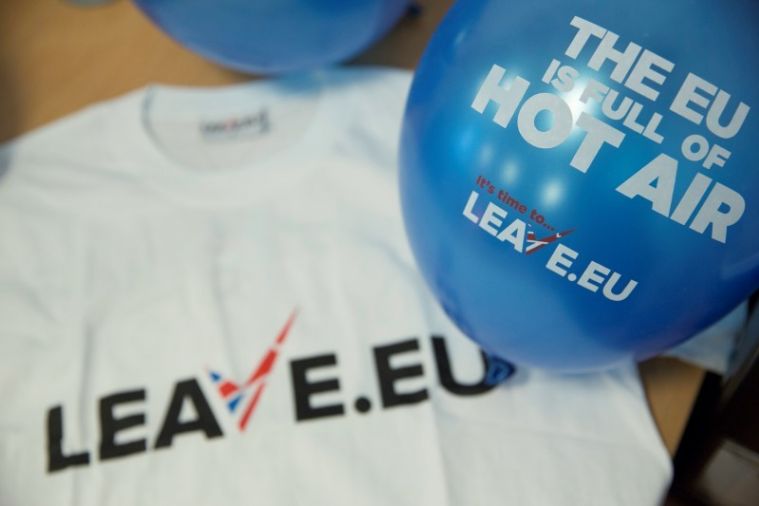How could the Bible help Christians think about the EU Referendum?

The European Union is a secular construct with foundations rooted firmly in Christian concepts of solidarity, subsidiarity and the common good. Many church leaders across Britain would support the "in" argument, recognising the aspirations of a union rooted in high ideals.
Does the Bible have anything to say about it? In the sense that it's even remotely interested in the technicalities of 21st-century inter-governmental treaties, no. But there are verses that provide imaginative jumping-off points for a serious critique of the EU project. As long as we're careful not to say they were written with the EU in mind or to claim divine backing for our position, they can at least help us talk about it.
Genesis 11:1-9 Everyone has heard the story of the Tower of Babel. God scattered the people over all the earth because he feared nothing would be impossible for a people that built a tower to reach into the heavens with "one language and a common speech". This is about usurping God's sovereignty. I've always thought the punishment was a bit hard on the people who gathered on the Plain of Shinar. Would the world be richer or poorer if we all spoke one language today? This passage does seem to suggest that diversity is part of God's wider plan. The original intention of splitting up the people of the world into language groups – and hence into nations – may be seen as part of the divine order to restrain evil.
Deuteronomy 17:14-20 This passage preaches against exploiting power in the name of greed and lust. It is about ensuring that power is answerable to God. No-one today is demanding racial purity or religious exclusion. The point here, following on from Babel, is that evil is restrained by limiting the accumulation of power. God gives land to possess, and sets up kings to rule "like all the nations around us". The principle is that God sets up nations: they are part of the divine order. The exhortation not to allow the king to accumulate horses or silver and gold is a specific prescription to mitigate power. The point is that the king is accountable, while Brexit proponents argue the EU is not accountable in any way that the peoples of each nation state can initiate or change policy. Power is centralised, not dispersed.
1 Kings 21 The descendants of Ahab, King of Samaria, are punished by God because of Ahab's wife Jezebel's murderous plot to seize Naboth's vineyard. Ahab, repentant, humbles himself and wears sackcloth after the deed was done, so God decides to punish his house in the days of his son instead. In our times, Greece is bankrupt. Workers are unemployed, families are being made homeless, people are starving and healthy men and women are committing suicide, unable to cope with life. God cares for the poor, destitute and underdogs of society. He pours his wrath upon those who just provide wealth for the wealthy and deprive the poor. The story of Naboth's vineyard establishes that authorities are not free to pursue any policy they please – policies such as so-called "austerity" – which ride roughshod over the rights of the poor.
Matthew 22 "Render unto Caesar what is Caesar's and unto God what is God's." This is Jesus accepting the principle of state power. From Caesar comes notions of social law, to which Christians are subject. But what happens when EU law overrides national law, as Brexit supporters argue is the case with the overarching corpus of legislation emanating from Brussels? The UK's liberal democratic concept of Caesar is fundamentally challenged by the EU's oligarchical concept of Caesar. Christianity makes it plain that all men are equal before God: no matter how poor or wealthy they may be, everybody counts. In political guise, this may be seen to point to democracy: the involvement of ordinary men and women in the framing of the laws by which they are governed. The EU is anti-democratic and unaccountable, say its opponents.
Romans 13 Let everyone be subject to the governing authority. Which authority that should be is what is contested in the Brexit debate. Supporters of remaining in Europe could use this passage to advocate for obeisance to Brussels. But we are also told there is no authority except that established by God. Britain's Coronation Service contains the words: "So be thou anointed, blessed, and consecrated Queen." Supporters of Brexit feel strongly that British sovereignty is being usurped.
(With thanks to Adrian Hilton at Christians for Britain for some input. Article and comment putting the case of Christians for the EU to follow soon.)











